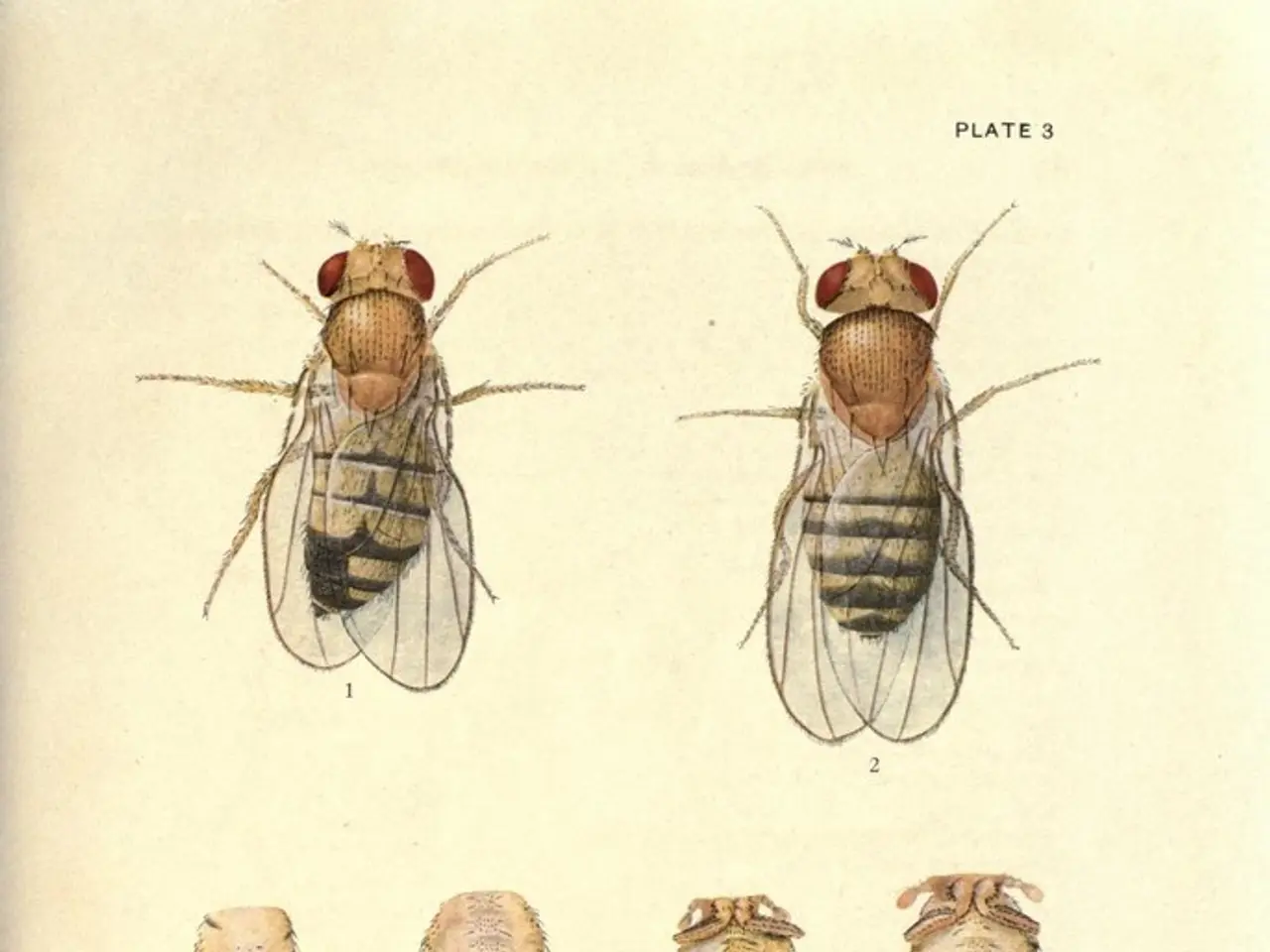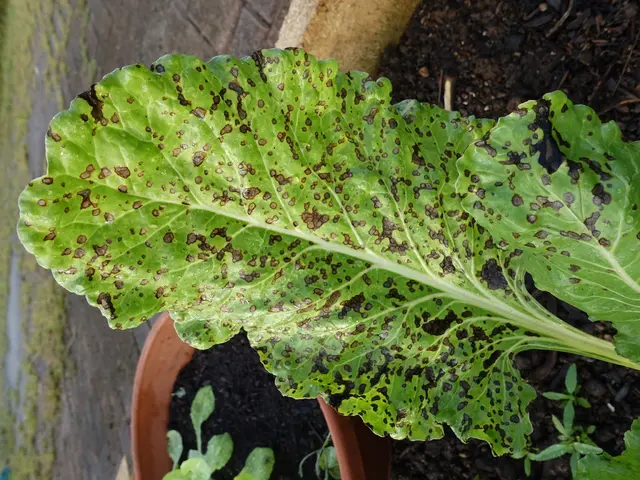Summer Increases Insect Population: Importance of Insect Repellents Highlighted
As warmer weather approaches, an increase in plant-sucking insects like aphids and scale insects can be expected. This rise in pests is often exacerbated by the application of excessive nitrogen to plants, which can inadvertently boost the aphid population.
In the face of this, it is crucial to protect oneself and loved ones against mosquito and tick-borne diseases such as Zika, Chikungunya, Dengue, and tick fevers. To combat these pesky insects, over 9,000 chemicals have been tested as repellents for various insects; however, only a few have proven effective and safe for general application.
Among the most effective and safe insect repellents for skin application are EPA-registered chemical repellents such as DEET, Picaridin (Icaridin), IR3535, and oil of lemon eucalyptus.
DEET, considered the gold standard for insect repellents, is safe for adults when used as directed, with recommended concentrations between 20% and 50%. For children, lower concentrations (20%-30%) are advised, and it should not be applied more than once a day on kids. Picaridin, equally effective as DEET but typically odorless, non-greasy, and less irritating to the skin, is preferred for children aged 6 months and older and those with sensitive skin. It is commonly available in 20% concentrations.
IR3535, used in formulations like Mustela Mosquito Repellent Lotion, offers protection for up to 8 hours, is lightweight, non-greasy, and fragrance-free — suitable for the whole family. Oil of lemon eucalyptus, an EPA-approved plant-based repellent effective against mosquitoes, should not be used on children under 3 years old.
While natural repellents like lemon eucalyptus oil, citronella, and garlic have some effectiveness, they offer less reliable protection and may require frequent reapplication or have skin irritation risks. Citronella, commonly used in candles and topical products, provides moderate protection but is less effective and shorter-lasting compared to DEET or Picaridin. It may require frequent reapplication and can cause skin irritation in some individuals. Garlic, while touted as a natural repellent, is generally not considered effective for reliable insect bite prevention.
In summary, DEET and Picaridin stand out as the most effective and safe insect repellents for skin application, with IR3535 and oil of lemon eucalyptus as alternatives, particularly for those seeking plant-based options. Natural repellents like citronella and garlic offer less reliable protection and may require frequent reapplication or have skin irritation risks.
For additional safety tips, do not apply repellents over cuts, wounds, or irritated skin. Apply sunscreen first, then repellent. Avoid spraying repellent directly on the face; instead, apply with hands. For children, always use child-specific products and follow dosing instructions carefully. Wash off repellents after returning indoors.
As research continues to evolve, new promising developments in mosquito population eradication are on the horizon. Additionally, it is essential to remember that insect populations fluctuate based on factors like temperature, moisture, food supply, and predators. Pig and rat populations also carry diseases that can cause human illnesses.
References: [1] Centers for Disease Control and Prevention (CDC) (2021). Insect Repellents and Protective Clothing. [Online]. Available: https://www.cdc.gov/zika/prevention/preparedness-response/communication/factsheets/insect-repellents.html [2] Environmental Protection Agency (EPA) (2021). Picaridin. [Online]. Available: https://www.epa.gov/insect-repellents/picaridin [3] American Academy of Pediatrics (AAP) (2021). Insect Repellents. [Online]. Available: https://www.healthychildren.org/English/safety-prevention/at-home/medication-safety/Pages/Insect-Repellents.aspx [4] Mustela USA (2021). Mustela Mosquito Repellent Lotion. [Online]. Available: https://www.mustelausa.com/product/mosquito-repellent-lotion/
- adhering to health guidelines is vital in protecting oneself and ones' family from mosquito and tick-borne diseases like Zika, Chikungunya, Dengue, and tick fevers;
- EPA-registered chemical repellents, such as DEET, Picaridin, IR3535, and oil of lemon eucalyptus, are highly effective and safe options for skin application;
- DEET, Picaridin, and IR3535 provide long-lasting protection, while oil of lemon eucalyptus is an EPA-approved plant-based alternative, but should not be used on children under 3 years old;
- natural repellents like citronella, garlic, and lemon eucalyptus oil offer less reliable protection and may cause skin irritation, requiring frequent reapplication.
- new advancements in mosquito population eradication and the understanding of lifestyle factors like garden care, home maintenance, and personal hygiene are essential in preventing and managing environmental-science issues like climate change and health-and-wellness concerns related to pests.








